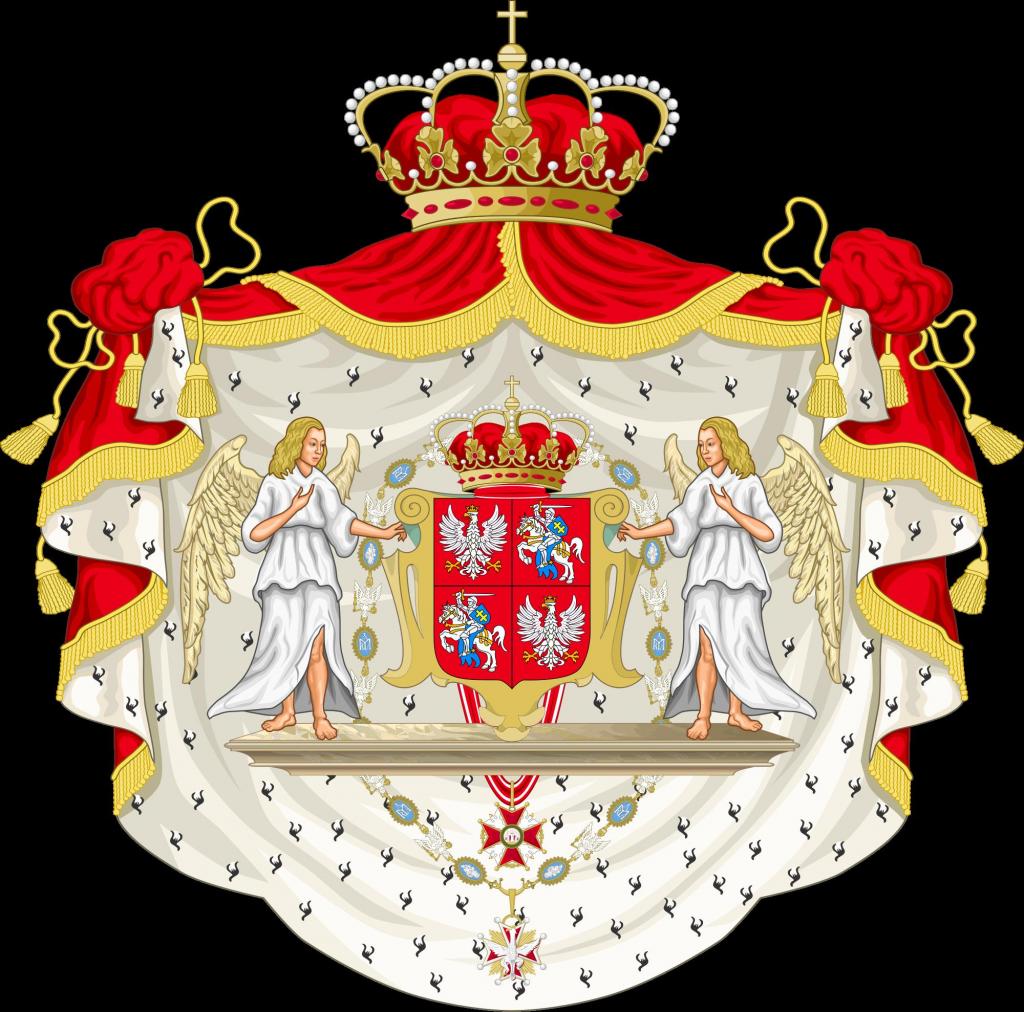The neighborhood of the two states and the territorial disagreements arising during the periods of wars left an imprint on the formation of Russian-Polish relations. One of the outcomes of the Patriotic War of 1812 was the decision of the Vienna Congress on the annexation of the Duchy of Warsaw to Russia. The duchy included Polish territories taken from Prussia in 1807 and from Austria in 1809 by Napoleon (the exception was Cracow, Poznan region, Galicia).
The liberal politics of Alexander I
Alexander I, a former liberal in his youth, never abandoned the idea of constitutional projects. Finland joined the Russian Empire in 1809 and received Poland in 1815 (Constituent Charter). The independence of the Poles in Russia was emphasized by the educated Sejm. True, unlike Finland, a governor, Grand Duke Constantine, brother Alexander, was appointed to Poland. The Polish army was reorganized into the Polish Corps, which became part of the Russian army. Despite the ethnic diversity of the population of Poland, the Poles were privileged to hold public office, including in the courts. Catholicism was recognized as the dominant religion, with the equality of other religions. Revenues of Polish lands were used exclusively in favor of Poland. The only person in the Polish Council representing the Russian government was appointed associate of the emperor N. N. Novosiltsev, who received the post of imperial commissar.
In 1818, speaking in Warsaw at the opening of the Sejm, Alexander made it clear that he would like to extend such constitutional trends to the rest of the Russian empire entrusted to him. It was in Warsaw, in an atmosphere of strict secrecy, under the leadership of Novosiltsev, that a draft of the Russian constitution, the "Charter of the Russian Empire," which never saw the light, was being prepared.
Poland's economic recovery
During the first ten years after the inclusion of the Duchy of Warsaw in the empire, the Poles in Russia reached a high level of prosperity. Napoleon used these territories as a source of military power - he replaced the soldiers who died in the era of war with the Poles. Nobody cared about the social structure and infrastructure, the people were bent under the weight of an overwhelming tax burden. Under Alexander, who had come to be known as the Polonophile, Poland came to life. The Russian government endowed the Poles with land and developed a program to help the poor. Cities and villages were rebuilt, destroyed by the Napoleonic invasion, roads were restored. Industry was actively developing, which was facilitated by customs privileges given to the Poles for the development of trade, and the establishment of the Polish Bank. With the assistance of the Russian authorities, education spread in Poland, and the University of Warsaw was established.
The reaction of Nicholas I
Despite the favorable policy of Alexander, the Poles in Russia longed for national statehood. Already at a meeting of the first Sejm, in 1818, parliamentarians, initially expressing eternal gratitude to the emperor, undertook to express dissatisfaction with the authorities. Gradually growing unrest was revealed, for example, with a shortage of taxes. Alexander took forced measures: the prohibition of debate at meetings of the Seimas and the introduction of censorship of printing.
The dream of restoring an independent state, the Commonwealth, led the Poles in Russia to develop a national movement that had no analogues in the empire of that period. The students who spoke were supported by the workers, the army, the raznochintsy, later the nobility and landowners. Demands were put forward for the restructuring of agriculture, the introduction of democratic freedoms and, as a result, the independence of Poland.

Nicholas I, who went down in history as Nikolai Palkin, learned a lesson from the Decembrist uprising of 1825 and set as his goal the prevention of revolution. Initially continuing Alexander’s policy of granting independence to Poland, Nikolai Pavlovich after the uprising of 1830-1831. eliminates autonomy. The diet is dissolved, the Polish army is eliminated. Confiscated estates and government posts are given to the Russians. In 1832, the Polish zloty was replaced by the Russian ruble, the metric system of measures was transformed into the imperial system. In 1864, instead of Polish, the Russian language became official.
Uprising 1830-1831 and 1863-1864 suppressed decisively, but without excessive bloodshed. The rebels were not subjected to harsh punishments, they were simply sent to exile in remote regions of Russia.
Poles in Russia. Historical facts
Russia, which has always been a multinational country, calmly treated representatives of other peoples. For example, at the end of the 17th century, the composition of the elite Boyars corps for a quarter consisted of Poles and Lithuanians.
Poles in Russia in the 19th century, during the reign of Alexander II and Alexander III, in some provinces occupied 80% of leading positions. Polish aristocrats, serving in the Russian army, high ranks were given on an estate basis, automatically. Poles were widely represented in the banking sector, business and transport infrastructure (railways). Poles in Russia at the beginning of the 20th century were granted privileges conducive to industrialization - the taxation of large industrial cities in Poland was 20% lower than the taxation of Russian cities. The size of the subsidy allocated by the Russian government to the Polish regions was very different. For example, education subsidies were five times higher than similar subsidies to the old Russian provinces.
Poland gained independence in 1917 as a result of the collapse of the Russian Empire, caused by the coming to power of the Bolsheviks. An assessment of the development of Poland as part of Russia is controversial to this day and affects Russian-Polish relations.